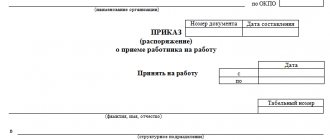The process of registering an inheritance can sometimes be very difficult. Russian legislation allows six months for the preparation of documentation, which is quite routine, but sometimes deviations occur that have to be resolved in court.
The emotional situation of opening the hereditary process is complemented by the accompanying stress from the negative conduct of the hereditary process.
The testator plays an important role. It is he who determines who will receive the property by drawing up a will, or his property simply passes to the legal heirs.
Definition of concepts according to current legislation
The current Civil Code explains in sufficient detail all the main legal aspects of inheritance relations. But for a person who does not have a special education, it is sometimes difficult to understand the subtle legal nuances of the legislation. The transfer of the property of the deceased to the heirs is carried out only in accordance with current regulations.
Absolutely anyone can unexpectedly inherit property. In this case, in order to realize your legitimate interests and rights, you need to at least superficially know the norms of the current Russian legislation.
A testator is a deceased person with a certain status who during his lifetime had any obligations and ownership rights to movable or immovable property. If you wish, you can dispose of your property in the event of death during your lifetime by drawing up a will.
A legal heir is a person to whom, according to civil legal norms, all or part of the property of the testator passes after the death of the latter.
The current legislation establishes the receipt of inherited property in two ways:
- will;
- law.
We discussed in more detail the specifics of inheritance by law and by will, as well as the consequences of accepting an inheritance using these methods, in a separate material.
The rules of Civil Law also determine the order of inheritance - first of all, close relatives inherit according to the law, and the state last. In the absence of a will, the inherited property, together with the obligations and encumbrances attached to it, is divided among the legal successors in equal parts.
Video about the existing line of heirs, in accordance with the norms of the Civil Code:
The heir can be not only an individual, but also a legal entity, as well as the state (in which cases the inheritance mass is recognized as escheated property and the state becomes the heir of the deceased, you will find out here).
All obligations in relation to property that the deceased person had during his lifetime automatically pass to his heirs after his death. You cannot inherit one particular right and at the same time refuse another. For example, you cannot inherit an apartment by refusing to pay the mortgage loan for it (we talked about whether the debts of the deceased are transferred to his legal successors here, and from this article you will find out whether the heirs need to repay the loans of the deceased).
Important! It is impossible to accept one separate right earlier or later than another - all inheritance rights and obligations pass to the heirs at the same time.
How does the inheritance pass to the heir?
There are two main ways to transfer inheritance: by law or by will. The second option is more correct, excluding third-party applicants, in addition to minor children, incapacitated relatives, the first is more natural.
The process of hereditary transition is typical. First, the inheritance opens. From the first day of opening, the process of transferring property begins. The absence or presence of a will does not play a vital role, but the second option is much easier: the notary gathers all the heirs, announcing the will of the testator, stated and certified in writing.
The absence of a will requires the heir to take priority action. Understanding his involvement in the property, the heir writes an application for acceptance of the inheritance, which he submits to the notary. You can go through the acceptance of assets together with a notary or hire a lawyer. The application must contain detailed information about the heir himself, justification for involvement in the property, and a detailed inventory. It is also necessary to provide the notary with any documents confirming relationship or involvement in assets: extracts from house books, paid bills, bank statements, registration information. Documentation is an integral part of the probate process, so all files are stitched together to form a single probate file.
Inheritance occurs in several queues. The first line is the closest one, consisting of children, parents, husbands, wives. Having multiple successors will require equity division. Typically, the inheritance is divided in half; the individual shares prescribed are typical for a will. For example, two sons have the same rights, so they will divide an apartment or a car in half according to the market valuation of assets, or they will agree among themselves who will receive which property. With a will, you can adjust this point by transferring certain benefits to your children.
Who can act as a testator?
Any person who during his lifetime owns any movable or immovable property becomes a testator after death.
His property is divided among his heirs in accordance with current legal acts and federal laws. You can become a testator during your lifetime.
To do this, you need to make a will and, through it, decide the fate of your property. In this case, after death, the property is distributed among legal successors according to his last disposition.
The estate is absolutely all the movable and immovable property of a deceased person. All obligations and encumbrances on the property that the testator had before the time of death also constitute an estate.
Assigned Rights
Any person has the right, at his own discretion, to decide the fate of his own property in the event of death. According to the law, property can be left as an inheritance to anyone, including the state.
The testator can posthumously transfer all property rights to one person or divide them between several people, as well as deprive any of the legal heirs of the inheritance (in which cases the testator can deprive the heirs of the inheritance, we tell here).
Reference! The rights and obligations of heirs and testators, the timing and procedure for accepting an inheritance, as well as types of inheritance are described in detail in Chapter 61 of the Civil Code of the Russian Federation.
What rights does a testator have when making a will?
When drawing up a testamentary document, the testator has certain rights that cannot be violated. These include the following:
- A citizen has the right to choose any people to inherit his property, including those who are not related to him.
- Until death occurs, the notary has no right to disclose the contents of the written expression of will.
- The testator has the right to independently distribute his property, designating shares for each successor.
- A person has the right not to explain to anyone why he divided his property this way.
- A citizen can indicate in his will instructions of a non-property nature.
- At any time, the testator has the right to make changes or completely cancel the testamentary document.
- The testator has the right to indicate in the will property that is still at the acquisition stage.
Inheritance is the will of the testator. He himself decides who to give it to, in what shares, etc. issues.
The preparation of this document occurs on the initiative of the testator, who must be legally competent. No one can be present when the will is drawn up, so as not to put pressure on the testator.
It is prohibited to make a will at home. But this can be done not under standard conditions, for example, while staying in a hospital, a rest home, while in a nursing home, on a long voyage, on an expedition. After the document is drawn up, it is certified by a notary.
If there are shortcomings in the document drawn up, the state has the right to independently determine the order of inheritance on the basis of the law:
- if the will does not say in what shares the property is distributed, then it is divided equally among the heirs;
- if the will does not specify who will receive the inheritance, and the main claimant refuses, in this case the state transfers the property in accordance with the law;
- if the will is drawn up again, and the testator has not indicated this, then this document is valid only in those points that do not contradict the new document.
We invite you to read: Are GPC agreements included in SZM?
A will can be rejected in several cases:
- the court declared it invalid;
- the court recognized it as a void will, i.e. one in which certain clauses are considered invalid.
According to the will, the heir receives property as follows. Opens a probate case at a notary office. Then he notifies the notary authority about his share of the inheritance, brings the necessary documents, pays the state fee, and after some time receives confirmation that he is the legal heir. The last step is registration of documents in Rosreestr.
The question arises: how does a notary find out about the death of the testator? You can find out about the death of the testator only from the words of the heir. Then the notary independently takes measures to locate the will and register it, if any.
In situations where the testator did not draw up a will, the law of the Russian Federation is applied.
Heirs become heirs in the manner prescribed by law. The first priority is the children of the deceased, spouse, and parents. The second line is brothers and sisters, grandparents on both sides, the third line is uncles and aunts. The law established the order of inheritance up to the seventh stage. If none are found, then all property will become state property.
An heir can receive property by law in two cases:
- He accepts the received property in fact, without filling out any papers. This is the simplest method that most people use, but it is ineffective because... relatives who claimed part of the inheritance and did not receive it can go to court.
- He prepares the notarial certificate. The notary opens an application for acceptance of the inheritance. After paying the state duty, the heir receives documents about the inheritance and is registered with Rosreestr.
Inheritance by law can also occur in the presence of a will in which the testator disinherited all his heirs by law, without indicating anyone as an heir from other persons (the property as escheated in this case will pass in the order of inheritance by law into the ownership of the state - clause 2 of article 1151 of the Civil Code of the Russian Federation).
Other cases of inheritance by law are also possible in the presence of a will. If the testator disposed of only part of his property in the will, inheritance by law arises in relation to the untested property. If the will is recognized as invalid in whole or in part, then inheritance according to the law opens in relation to this part of the property or inheritance as a whole.
We invite you to familiarize yourself with: Tax law problems with solutions
When does a person become a testator?
After the death of a person, the fate of the property belonging to him during his lifetime is determined by the state. All property of a deceased person is divided among his legal successors. If there are no legal heirs, then everything acquired through back-breaking labor goes to the state. But it happens that a person wants his property to go to certain people after death. In this case, he must write a will.
The testator is the person who wrote the testamentary disposition and duly executed it with a notary.
Testator: definition of the term, rights and obligations of the person
Such strict restrictions are due to the fact that drawing up a will involves the execution of a person’s last will. This is a voluntary procedure. A person must come to its registration himself, without pressure from third parties. If it is discovered that a person drew up a document while incapacitated (mental disorders, alcohol or drug intoxication) or did so under threats, then the will is revoked. If a person becomes incapacitated after the document is drawn up, it does not lose its validity.
To whom can you legally bequeath your property?
It is clear that close relatives will receive the inheritance even without a will.
But what if there are no legal successors? The question of who can bequeath property worries many people.
According to the norms of civil law, you can leave an inheritance:
- one person or several people, regardless of the degree of relationship;
- to the state, including foreign ones;
- any enterprises or institutions, including international ones.
Recognition of the death of the testator
The consequence of declaring the testator dead is the leaving of property values that are passed on to the heirs. This is the ultimate goal of the legal process initiated by filing a statement of claim. The procedure is advisable in cases where, for example, at the time of death there were people nearby who could confirm the fact, but the body was not found and it is not possible to carry out an examination.
Such cases include vehicle crashes. For example, it is often not possible to remove all the corpses from a sunken ship. The crash of an airliner is accompanied by fire and other tragic circumstances that do not allow obtaining a medical report. The person has missing person status and is not considered dead. As a result, he is not recognized as a testator and the property cannot be inherited.
They go to court. The peculiarity of the application is the absence of the defendant. A hearing date is set and the evidence is reviewed. If there are sufficient grounds to believe that the citizen no longer exists from a legal and physical point of view, the judge makes an appropriate decision. It is provided to the notary, who opens the will and performs the necessary actions.
All the arguments set out in the text of the claim are confirmed. The evidence base is formed by documents and testimony. The documents presented indicating the death of the testator must have legal force. These are official documents issued by authorized structures and organizations. Only the testimony of competent witnesses will be accepted for consideration.
Six months is enough to declare a person missing if his whereabouts are unknown, as well as the reasons for his disappearance. The status of deceased is assigned to the testator who:
- Did not appear within five years after the date of disappearance indicated in the statement to law enforcement agencies.
- Due to the presence of illness or other reasons, he could die within six months from the moment he was put on the wanted list.
- He serves in the army, participates in hostilities, disappeared 2 years ago and did not send news to his family or command.
- Became a victim of special circumstances when judges recognize the testator as deceased after 3 years.
There are many situations in practice, and in order not to delay the inheritance case, contact a specialized lawyer who will correctly draw up a complaint and achieve recognition in a short time. A citizen with a personal interest has the right to file a claim. The heir belongs to this category of applicants. The procedure for obtaining an act stating the fact of the death of the testator is as follows:
- Collection of documentation to form an evidence base. Any papers that directly or indirectly indicate this fact are used.
- Drawing up and filing a claim after paying the state fee. In this case, a lawyer is needed who can correctly substantiate the plaintiff’s claim.
- Personal participation in the process with the involvement of witnesses who have the right to testify in the case of declaring the testator dead.
- Obtaining a copy of the court ruling that the testator is considered dead as of a certain day. This gives the right to initiate an inheritance case.
Transfer of inheritance to the legal successor according to the last will
At the moment of a person’s death, his civil legal capacity ceases, and an inheritance is opened (read about accepting an inheritance and the rules for opening it here). If the deceased did not leave a testamentary disposition, then his property is distributed among the legal heirs in accordance with the norms of civil law. If there is a will, the inheritance is divided among the legal successors, as the implementation of the last will of the testator.
Note! Successors must enter into inheritance within 6 months from the date of death of the testator and the opening of the inheritance.
Who can be the heir of the testator?
An heir and a testator are defined by law in completely different ways. Inheriting property can be very difficult. Here the degree of kinship plays an important role; accordingly, the inheritance process is built exclusively on family relationships.
First order relatives are recognized as heirs much faster and easier. If a person, for example, lived with the testator, had joint expenses, registration, inheritance rights will be obvious. Such heirs need to contact a notary in charge of the inheritance case. The process opens at the place of last residence of the testator. You can contact the city branch of notary offices, which will tell you the address of the required branch. The citizen declares to the notary that he is an heir and submits an application to accept the inheritance. This document opens an inheritance process that lasts six months. The countdown begins from the moment the inheritance is opened.
You can draw up the application yourself, but you cannot make mistakes, so in order to comply with the necessary wording, it is better to take a template from a notary. It is better to trust the inheritance process to specialists who have the appropriate legal competence, avoiding possible errors and omissions. The stage of re-registration of assets does not proceed quickly, however, if the papers are drawn up correctly and there are no other relatives unlawfully claiming the inheritance, the matter will proceed smoothly.
Inheritance law
A notary engaged in private practice may be entrusted with performing the above-mentioned notarial actions in exceptional cases, i.e. in the absence of a state notary office in the notarial district in which this notary operates, and only by a joint decision of the territorial body of the federal executive body exercising law enforcement functions and functions of control and supervision in the field of notaries, and the notary chamber. Other persons authorized to perform relevant notarial actions by virtue of Art. 1127 Civil Code of the Russian Federation, art. 37 and 38 of the Fundamentals of the legislation of the Russian Federation on notaries, they can also certify a will and perform other legally significant actions.





